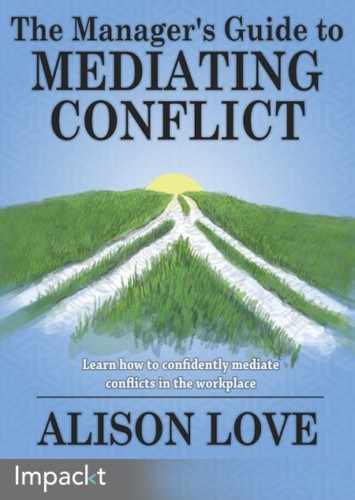"The opposite of a profound truth may well be another profound truth" | ||
| --—Niels Bohr, Danish physicist | ||
An understanding of the key principles of conflict and the impact it has on individuals will help you to understand why mediation can be so effective. Understanding the foundational ideas upon which the concept of mediation is built will give you a greater sense of the skills needed to mediate and facilitate workplace disputes. By acknowledging some of the causes of conflict in a contemporary office environment, you will gain a stronger understanding of exactly when and how you should take action.
At its core, conflict is very simply a different point of view; the differences being due to our varied experiences, views of the world, and cultures or values. All of these elements give us different perspectives and influence how we see things.
Conflict is not about who is right or who is wrong. It is about the different way that we see and interpret things. Individuals often get stuck in conflict situations because they get caught up in questions around truth, intentions, and blame. In terms of resolving conflict, then, who is right and wrong isn't important; what is fundamental is understanding and accepting differing perspectives. Your role as a mediator is to facilitate the parties in achieving this; it is about helping the parties to better understand each other sufficiently rather than getting the parties to agree with each other.
In the vast majority of the mediations that I have been involved in, the specific facts and issues of a dispute often fall away very quickly and become irrelevant. What's left are differing perspectives and hurt feelings fuelled by misunderstanding, miscommunication, distrust, and speculation over the intentions of others. As a mediator, you need to tackle all of these things and not be afraid to do so. Resolution can only come from the emotional aspects of disputes being aired and understood.
Helping parties to shift their focus away from establishing who is right and who is wrong towards acknowledging the impact of the conflict on each other and understanding each other's perspective is a key principle in resolving conflict. This can range from giving the individuals themselves the support and skills to resolve conflict positively to interventions from others, including informal action by you as the line manager or by adopting the role of a mediator.
